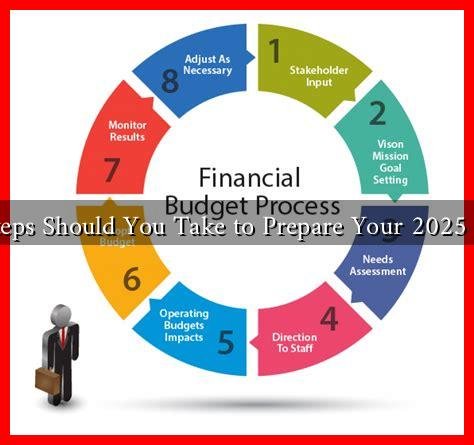-
Table of Contents
What Steps Should You Take to Prepare Your 2025 Budget?
As we approach the end of 2024, it’s time to start thinking about your budget for 2025. Whether you are an individual, a family, or a business, preparing a budget is crucial for financial health and planning. A well-structured budget helps you allocate resources effectively, track spending, and achieve your financial goals. In this article, we will explore the essential steps to prepare your 2025 budget, ensuring you are well-equipped to face the upcoming year.
Step 1: Review Your Previous Budget
The first step in preparing your 2025 budget is to review your previous budget. This involves analyzing your income and expenses from the past year to identify trends and areas for improvement.
- Income Analysis: Look at your total income sources, including salary, investments, and any side hustles. Did you meet your income goals?
- Expense Tracking: Categorize your expenses into fixed (rent, utilities) and variable (entertainment, dining out). Identify any overspending or areas where you can cut back.
- Adjust for Changes: Consider any life changes that may affect your budget, such as a new job, relocation, or family changes.
Step 2: Set Clear Financial Goals
Establishing clear financial goals is essential for guiding your budgeting process. Goals can be short-term (saving for a vacation) or long-term (retirement savings).
- SMART Goals: Ensure your goals are Specific, Measurable, Achievable, Relevant, and Time-bound.
- Prioritize Goals: Rank your goals based on urgency and importance. This will help you allocate funds appropriately.
- Example: If your goal is to save for a home down payment, determine how much you need and set a monthly savings target.
Step 3: Estimate Your Income for 2025
Next, estimate your income for the upcoming year. This can be straightforward for salaried employees but may require more effort for freelancers or business owners.
- Fixed Income: Include your salary and any guaranteed income sources.
- Variable Income: Estimate income from freelance work, bonuses, or investments based on historical data.
- Consider Economic Factors: Stay informed about economic trends that may impact your income, such as inflation or job market changes.
Step 4: Create a Detailed Expense Plan
Once you have a clear understanding of your income, it’s time to create a detailed expense plan. This involves categorizing your expenses and setting limits for each category.
- Fixed Expenses: List all fixed expenses, such as rent, mortgage, insurance, and subscriptions.
- Variable Expenses: Estimate costs for groceries, entertainment, and discretionary spending.
- Emergency Fund: Allocate a portion of your budget for unexpected expenses to avoid financial strain.
Step 5: Monitor and Adjust Your Budget Regularly
Creating a budget is not a one-time task; it requires ongoing monitoring and adjustments. Regularly reviewing your budget helps you stay on track and make necessary changes.
- Monthly Check-ins: Set aside time each month to review your spending and compare it against your budget.
- Adjust as Needed: If you find you are consistently overspending in a category, consider adjusting your budget or spending habits.
- Use Budgeting Tools: Consider using budgeting apps like Mint or YNAB (You Need A Budget) to simplify tracking.
Conclusion
Preparing your 2025 budget is a vital step toward achieving financial stability and reaching your goals. By reviewing your previous budget, setting clear financial goals, estimating your income, creating a detailed expense plan, and monitoring your budget regularly, you can set yourself up for success in the coming year. Remember, budgeting is a dynamic process that requires flexibility and commitment. With careful planning and regular adjustments, you can navigate the financial landscape of 2025 with confidence.
For more resources on budgeting and financial planning, consider visiting NerdWallet.

